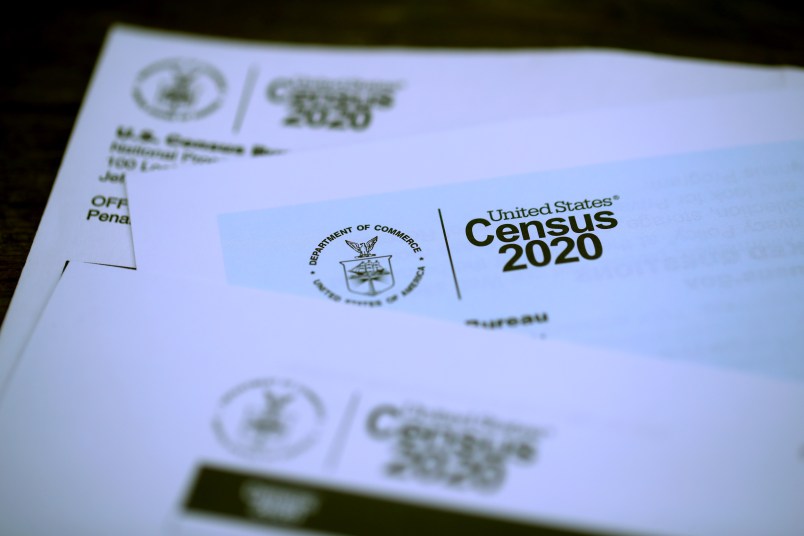Department of Justice lawyers claimed in a Tuesday filing that it would take them “several weeks” to compile a record of how the Trump administration made its abrupt decision to cut in half the timeline for collecting census data early last month.
There is no administrative record “as that term is ordinarily used,” the lawyers argued, because the census operation includes many employees and a “dynamic, ongoing operation.”
And to pull together such a report, they argued, would be to the detriment of the census process.
“Simply put, there are no individuals with knowledge of the replan who can be spared time compiling a record because they are consumed with the census,” the attorneys wrote. “The Bureau is attempting to conduct an accurate and thorough census, in the middle of a global pandemic, and no employee has spare time.”
The Census Bureau’s abrupt decision to shorten the timeline for collecting the 2020 census, in the midst of a pandemic, has prompted an outcry — as well as a legal challenge. U.S. District Judge Lucy Koh placed a temporary restraining order on the move on Saturday.
During a virtual hearing on Tuesday, Koh seemed particularly interested in the administration’s resistance to ponying up the documents undergirding the timeline change.
“I just find it hard to believe that there’s no administrative record here. I do not understand the government’s refusal to be transparent about what they have decided to do,” she said, according to NPR reporter Hansi Lo Wang.
She asked why the government “is so afraid” of revealing the relevant documents.
The administration’s loose attitude toward the law has derailed its census meddling efforts before: It was the reason the Supreme Court blocked its attempt to add a citizenship question to the census in 2019.
The plaintiffs, led by the National Urban League, responded to the administration’s complaints on Wednesday. And on the supposedly heavy lift to amass the information, they were unsympathetic.
“Defendants’ objections to scope are purely practical in nature: they cannot do what the law requires in ‘two days,’” they said of the judge’s tentative deadline for an administrative record of the decision-making process. “That is a problem of their own making; this Court told them, on August 26, that ‘[i]f there’s an administrative record, it should be produced.’”
They also dismissed the DOJ lawyers’ argument that it would pull too many employees off the important work of the census.
“This would not be ‘years’ of data,” the attorneys wrote. “Nor does it cover hundreds of employees. But it will allow the Court to see what the Replan was conceived to be and is; when the decision was made; and what was considered when making the decision to shorten the data collection and processing timeframes.”
Earlier this year, President Donald Trump announced that his administration would exclude undocumented immigrants from the apportionment data which, among other things, determines how many House seats each state gets. The move to curtail the 2020 count came soon after.
If the census process went along as initially planned, Trump would run the risk of losing control of the count to an incoming Biden administration, which could reverse the new immigrant policy. The expedited timeline ensures that Trump can see the process through.
Read the DOJ lawyers’ filing here:
And the plaintiffs’ response here:







Understandable, they have a far more pressing IMPOTUS rape case to defend…
If they are SO busy they cant spare anyone…then perhaps they should not have shortened the time to compile the census? Makes sense to me.
Not a lawyer, but sounds like the government is admitting they don’t have enough time to complete the census as is, so no actual justification for shortening the timeline to complete it?
1. Don’t feed the bears.
2. Don’t get involved in a land war in Asia.
3. Don’t piss off a federal judge.
Those documents aren’t going to shred themselves.